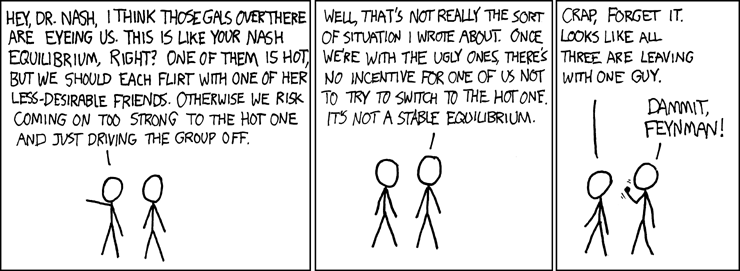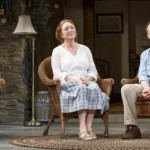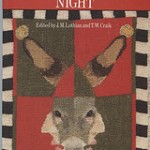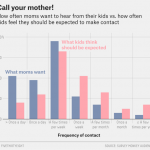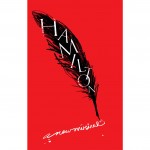As the year winds to a close, and you may be starting to wonder what gifts which books to give friends and family for the holiday, I would, of course, like to remind you of the existence of Arcadia, Gödel Escher Bach, Reflections on the Psalms, and the corpus of Sondheim, for this week’s quick takes, I’m sharing my seven favorite books I read for the first time this year. They are in the order I read them chronologically over the last eleven months.
Also, if you would like to do me a mitzvah, when you click any of the links on this page to do your Amazon holiday shopping (whether you’re buying these books specifically or not), I get a small percentage of Amazon’s price, which I use to buy… more books. So, without further ado:
Stories of Your Life and Others – Ted Chiang
I’d had this science fiction anthology on hold at the library for months in DC, but I didn’t actually get the chance to read it til I was in California and got to borrow it from a friend. I’ve loved Ted Chiang since I read “Hell is the Absence of God” and was blown away by the worldbuilding. I love reading his short stories because they feel like I’m falling into well-realized worlds that I’d like to stay in and keep exploring afterwards. And his tech developments tend to tease out human psychology more than physics.
You can read the title story of the collection here. The protagonist works on understanding an alien language and this story made me delighted in some of the same ways ASL and Hofstadter do.
The Strategy of Conflict – Thomas Schelling
When Jesse Galef arranged his bookshelf by Hogwarts House, enough commenters popped up to tell him that Strategy of Conflict belonged on the Slytherin shelf to guarantee this book on game theory a spot in my queue. The author is the Schelling of Schelling Point – the strategy or outcome that people will converge to in the absence of communication (e.g. If you were told to meet someone in NYC, but not where, where would you turn up?).
It has mathy sections, along with plenty of story-like scenarios, so you can get a lot out of it whether or not you’re reading the formulas and proofs. If I wrote fiction, I think I’d be glad to have read this just for the expansion of ways to cause and resolve conflict. As it is, it felt like reading this book took a lot of strategies and ideas I knew about in isolation and knit them together. (It’s amazing how many tactics I recognized specifically from political wheeling and dealing in my college debate group).
Surely You’re Joking, Mr Feynman! – Richard Feynman
I have no idea how I made it to 24 without reading this. Somehow I managed to read and see QED, the play based on Feynman before actually reading his memoir. It was predictably delightful. The science and math is very clearly explained, and Feynman’s tinkerer’s heart is apparent in every anecdote. He is so full of joy at the prospect of understanding and tinkering with anything, whether it’s high level physics or lockpicking. I kept grabbing people to read parts aloud and then just squeal together appreciatively.
And I feel it’s apropos to remind you of this:
The Death and Life of Great American Cities – Jane Jacobs
Another book that I’d heard praised repeatedly, and somehow never managed to pick up. It’s fascinating to see cities studied as dynamic systems, seeing how small adjustments (more light, fewer storefronts, etc) can trigger major shifts in the character of a neighborhood. This seemed to pair well with Robert Nisbet’s The Quest for Community, since both books look at structural problems preventing people from forming bonds with their neighbors and losing the opportunity to build institutions and traditions.
Catherine of Siena – Sigrid Undset
Technically, I didn’t enjoy Undset’s biography as much as I found it usefully unsettling. It was high time I read something about St. Catherine, given how many Dominican friars I’ve made friends with (and since I felt my St Catherine loyalty was strongly to St Catherine of Alexandria).
Undset’s book is vivid and engaging, enough so that I kept flinching. Everything about Catherine’s life seemed so extreme and grotesque, from her miracles to her visions to her penances. Her experience of Christ is much more mystical and visceral than my somewhat excessively academic and abstract approach, and I kept feeling overwhelmed to the point of being a little repulsed. So, in the end, I was very grateful to Undset for making the saint specific enough to be overpowering.
The Child that Books Built: A Life in Reading – Francis Spufford
I am such a sucker for books-heavy memoirs. In the worlds of Diane Duane, Spufford definitely qualifies as a wizard (“Wizards love words. Most of them read a great deal, and indeed one strong sign of a potential wizard is the inability to get to sleep without reading something first…”). I’ve quoted from his book already in a link round up, and I found his memoir had a pleasing mix of observations that made me feel intense kinship and new reflections for me to mull over.
Shadow and Bone and Siege and Storm – Leigh Bardugo
Warning: don’t read the Amazon description for Siege and Storm or Ruin and Rising since both contain major spoilers for the preceding books.
I read both of these books in Bardugo’s Grisha trilogy in a single day. And, as the word ‘trilogy’ suggests, I’m looking for people to sucker in to wait impatiently until this summer for the debut of Ruin and Rising. I do think the best way to pitch you all is to suggest you read one of Bardugo’s stories set in the same world, “The Witch of Duva.” I still don’t know exactly how to explain it, but there’s something very rich and unsettling about the world she’s made, which is why I didn’t put her books down once I picked them up. So, hopefully a couple of you will be ensorcelled too, and I’ll have people to kvell with.
I’d love to hear your favorite new reads of the year in the comments section!
For more Quick Takes, visit Conversion Diary!


